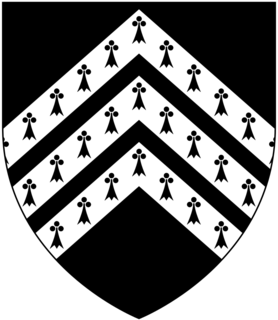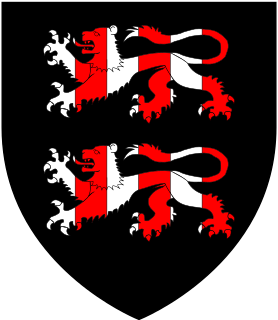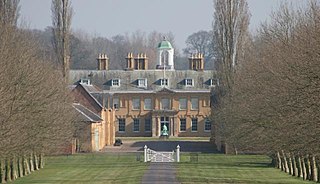Robert Hunt (c. 1609 – 20 February 1680) was an English lawyer and politician who sat in the House of Commons at various times between 1641 and 1660. He supported the Parliamentary cause in the English Civil War, although he was mistakenly disabled from parliament as a Royalist.

The House of Commons of England was the lower house of the Parliament of England from its development in the 14th century to the union of England and Scotland in 1707, when it was replaced by the House of Commons of Great Britain. In 1801, with the union of Great Britain and Ireland, that house was in turn replaced by the House of Commons of the United Kingdom.

The English Civil War (1642–1651) was a series of armed conflicts and political machinations between Parliamentarians ("Roundheads") and Royalists ("Cavaliers") over, principally, the manner of England's governance. The first (1642–1646) and second (1648–1649) wars pitted the supporters of King Charles I against the supporters of the Long Parliament, while the third (1649–1651) saw fighting between supporters of King Charles II and supporters of the Rump Parliament. The war ended with the Parliamentarian victory at the Battle of Worcester on 3 September 1651.
Hunt was the eldest son of John Hunt of Forston, Charminster, Dorset and Compton Pauncefoot, Somerset and his wife Catharine Pepham, daughter. of Alexander Popham of Huntworth, North Petherton, Somerset. [1] He was educated at Rampisham, Dorset under Mr Allott and was admitted at Caius College, Cambridge on 5 October 1625, aged 16. He entered Middle Temple in 1625 and was called to the bar in 1633. [2] He was a J.P. for Somerset by the early 1640s. [1]

The Honourable Society of the Middle Temple, commonly known simply as Middle Temple, is one of the four Inns of Court exclusively entitled to call their members to the English Bar as barristers, the others being the Inner Temple, Gray's Inn and Lincoln's Inn. It is located in the wider Temple area of London, near the Royal Courts of Justice, and within the City of London.
In November 1640, Hunt was elected Member of Parliament for Ilchester, but his election was declared void. However he was re-elected in February 1641. He was disabled from sitting in 1644 when the local sequestrator claimed that he had attended the King's Parliament. However he was able to prove that he had given £100 to support the parliamentary cause. He was cleared delinquency but did not resume his seat. He was JP for Somerset from 1654 to 1659, a commissioner for scandalous ministers in 1654, a commissioner for security in 1655, and a commissioner for assessment in 1657. As High Sheriff of Somerset for 1654–55 during the Interregnum he was in charge of the trial of the Royalists after the Penruddock uprising which he conducted with reliability and impartiality. In 1659 he was elected MP for Somerset in the Third Protectorate Parliament. He was JP for Somerset from March 1660 until his death and a commissioner for militia in March 1660. [1]
Ilchester was a constituency of the House of Commons of the Parliament of England, then of the Parliament of Great Britain from 1707 to 1800 and of the Parliament of the United Kingdom from 1801 to 1832. It was represented by two Members of Parliament until 1832. It was one of the most notoriously corrupt rotten boroughs.
The Office of High Sheriff of Somerset, until 1974 called Sheriff of Somerset, is an ancient shrievalty which has been in existence for over one thousand years.
The Penruddock uprising was one of a series of coordinated uprisings planned by the Sealed Knot for a Royalist insurrection to start in March 1655 during the Protectorate of the Lord Protector Oliver Cromwell.
In April 1660 Hunt was elected MP for Ilchester in the Convention Parliament. He was commissioner for sewers in August 1660. He was commissioner for assessment from 1661 until his death and Deputy Lieutenant from 1666. He was considered "the most reputed justice in Somerset" and personally uncovered "a hellish knot of witches" in spite of official discouragement. He was a commissioner for recusants 1675. In the first general election of 1679 he stood for parliament together with Edward Phelips, but there was a double return and they never took their seats. [1]

The Convention Parliament followed the Long Parliament that had finally voted for its own dissolution on 16 March that year. Elected as a "free parliament", i.e. with no oath of allegiance to the Commonwealth or to the monarchy, it was predominantly Royalist in its membership. It assembled for the first time on 25 April 1660.
Hunt died at the age of 70 and was buried at Compton Pauncefoot. [1]
Hunt married Elizabeth Browne, daughter of John Browne of Frampton, Dorset on 24 September 1635. They had three sons and five daughters. His wife died on 24 September 1675. [1]







